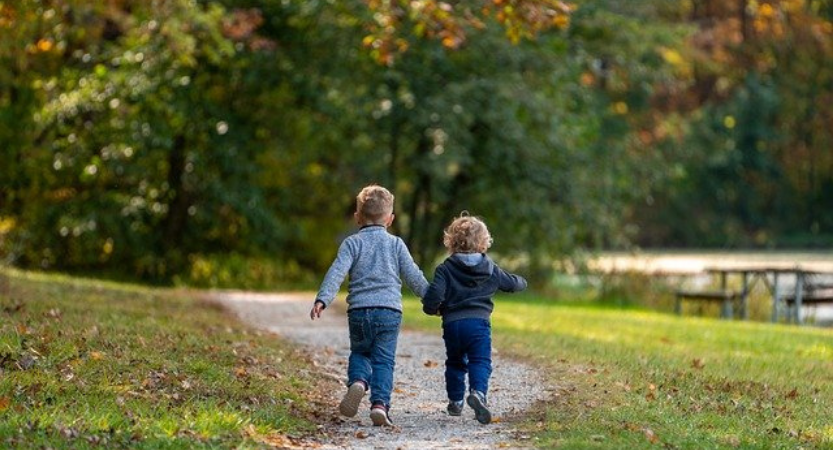Taking care of the child’s immune system is one of the primary responsibilities of parents. Frequent illnesses, susceptibility to viral diseases in schoolchildren are all signs that the child’s immune system is failing and needs to be raised.
Some parents are struggling with this on their own with home methods, others immediately resort to medication. Before adopting any method, you need to understand what is the immune system of the body?
The immune system is one of the most perfect ways to protect the human body from external aggression and cell changes inside the body. It protects not only from infections, but also from foreign substances, as well as from its own, but altered cells, which can give rise to cancer.
By the time of birth, the baby has a relatively mature but not fully mature immune system. It is finally formed by about 7-8 years of age. And for a child’s immune system to develop correctly, the child must learn about the world around him, train the immune system and receive the necessary substances to build immune cells, antibodies, and protective barriers.
To train the child’s immune system, children periodically have to get sick, in childhood they do it more often than adults. This is also a training of child’s immune system, development of defense mechanisms.
But these should be infections that are relatively easy and stable. Especially aggressive infections, dangerous illnesses, or extreme injuries will not be beneficial.
But it is also impossible to create sterile conditions around the child, protecting the baby from any external influences.
Everything should be in moderation for your child. But if a child literally does not get out of colds, gets sick often and with prolonged episodes, his/her immune system needs help and support.
Here are some 7 ways how to boost immune system of a child.
Table of Contents
1. Provide Healthy Food
Your little one needs to get a balanced nutritional intake every day. Several vitamins are also known to increase the child’s immune system, such as vitamins A, B, C, D, and E. Also, minerals that are important for the body’s immune system include zinc, copper, and iron.

Motivate the little ones so that they are eager to eat vegetables and fruits. Not only does it contain vitamins and minerals, a variety of vegetables and fruits also contain fiber that can help maintain a child’s digestive health.
Make sure your little one consumes high-fiber children’s milk. You can give them milk to help meet their fiber needs – this can stimulate the growth of good bacteria in their intestines. These good bacteria will then help maintain a clean gut and boost your baby’s immune system.
2. Good Sleep
Adequate sleep is also a way to increase child’s immune system . During sleep, the body will repair damaged cells and produce white blood cells that function to fight infection.
During sleep, your children’s body will also produce special cells that play an important role in attacking and destroying virus-carrying cells.

Therefore, experts recommend a sufficient amount of sleep for children to improve their health, namely 16 hours a day for babies, 11-14 hours for toddlers, 10-13 hours for preschoolers, and 12 hours for children aged 6 -12 years old.
3. Daily regime
Human nature loves rhythms – a certain alternation of sleep and wakefulness, eating, and walking. If all this is done at the same time, the body can be compared to a machine operating in an economical mode – wears out less and lasts longer.

And all rhythms are laid at a very early age and remain for life. Therefore, it is important to teach the child from early childhood to the regime and strictly observe it both on weekdays and holidays.
Compliance with the daily regimen with mandatory daily sleep up to 7 years is a guarantee of health. The child should not lie in bed for a long time in the morning. They must get up no later than 9 am, and in the evening the lights should not be later than 10 pm.
4. Fresh Air At Least Two Hours a Day
There are both air baths and sunbaths, saturating the body with such necessary vitamin D. Even in cloudy weather, you can take sun baths – ultraviolet rays pass freely through the clouds.

It is important to be able to dress the child for the weather. Mothers and grandmothers worry that the baby will freeze and dress him like a cabbage, while the child overheats, sweats, and, naturally, gets sick.
Light freezing will stimulate the child to be active and keep him warm. But overheating will lead to a sharp decrease in immunity. We should dress the child as ourselves, that is, the same number of layers of clothing.
5. Help Children Manage Stress
Anxiety can often lead to disturbed sleep patterns and changing eating habits. This, in turn, will result into a lower immune response.
Since most of the stress on children who go to school is related to homework or exams, help the child manage their learning load with the following strategies:

- Plan a daily schedule with your toddlers.
- See which extra activities need to be reduced.
- Teach children how to make things simple by breaking down big projects into smaller and more doable tasks.
- Encourage children to ask questions in class if they do not understand the lesson.
- Remind children to take regular breaks while studying.
There are times when children may experience social pressure as a result of bullying or friendship problems. Encourage and get the child into the habit of discussing his feelings with the parents whenever the child has a problem.
6. Personal and Collective Hygiene
Every day in the house it is necessary to carry out wet cleaning, since in a dry room the dust is in a suspended state, in the access zone to the respiratory tract.
If you even once examine a little dust under a microscope, you will simply be horrified – mold spores, particles of human skin, insect remains, live micro mites. From an early age, it is necessary to develop the child’s skill to wash their hands before eating and after using the toilet.

Cleanliness and hygiene of the nose and throat are important for the child, teach your child to rinse their mouth with cool water from childhood, rinse and clean the nose.
Also, it is important to create the necessary microclimate in the house, cool (20-22 degrees) and humid (50-60% humidity) air help to normalize breathing and prevent colds.
7. Minimize the Use of Antibiotics
Preferring antibiotics when the child is sick will not improve the child’s immune system to infectious diseases. Antibiotics only help bacterial infections such as ear infections, sinus infections, or pneumonia.
Because of the overuse of antibiotics over the years, bacteria have become increasingly resistant to drugs and difficult to manage. Some strains are now resistant to nearly every available antibiotic.
Since antibiotics can weaken the immune system by killing the good bacteria in the body, it is best not to force doctors to prescribe antibiotic treatment for children when they are sick.
Antibiotics will not cure most colds, coughs, sore throat, or flu, as these are caused by viruses. Rest assured, the child’s body can fight this infection on its own. If necessary, the doctor will suggest medication to help relieve the symptoms, not antibiotics.
Conclusion
The basis for strengthening the child’s immune system is non-drug means, they are usually very slow to perform, but they are the most effective. Besides, all these methods have no contraindications.
Another effective method of preventing influenza is vaccination. Prevention of colds is a long-term process that is much easier and more effective for people who take care of their health all the time, and not only during seasonal flu epidemics.
A balanced diet, a healthy lifestyle, hardening, and active sports will increase the body’s resistance to colds and prevent the occurrence of many other health problems.


